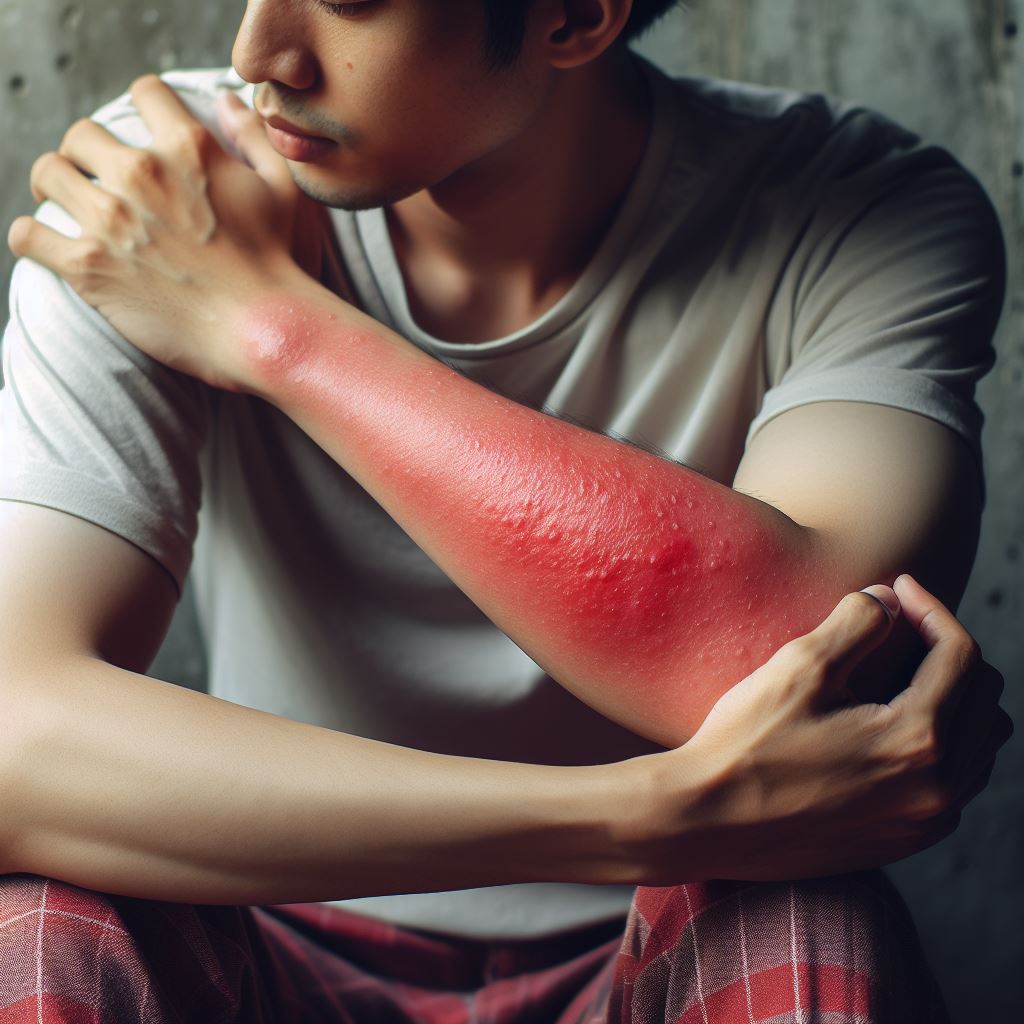Skin allergies

Skin allergies can manifest as redness, itching, swelling, or rashes after exposure to an allergen. Common causes include contact with certain plants (like poison ivy or poison oak), reactions to specific ingredients in cosmetics or personal care products, or even some medications. Here are some over-the-counter (OTC) treatment options to alleviate skin allergy symptoms:
1. Topical Corticosteroids (Steroid Creams/Ointments):
Hydrocortisone 1% (e.g., Cortizone-10, Aveeno 1% Hydrocortisone Anti-Itch Cream): Reduces itching, redness, and swelling. Follow the instructions and avoid using for more than 7 days unless directed by a healthcare professional.
2. Calamine Lotion: Helps to relieve itching and discomfort from poison ivy, poison oak, or poison sumac rashes.
3. Anti-itch Creams or Gels Containing Pramoxine: Sarna Original Lotion, Aveeno Anti-Itch Concentrated Lotion: Can help soothe itching.
4. Topical Analgesics with Menthol or Camphor: Icy Hot, Gold Bond Medicated Lotions and Powders: Provide a cooling effect that can temporarily relieve itching.
5. Topical Antihistamines: Diphenhydramine (e.g., Benadryl Itch Stopping Cream): These can relieve itching but may cause skin sensitization or allergic reactions in some people. They’re not generally recommended for prolonged use on the skin.
6. Oral Antihistamines:
Diphenhydramine (e.g., Benadryl)
Cetirizine (e.g., Zyrtec)
Fexofenadine (e.g., Allegra)
Loratadine (e.g., Claritin)
These can help reduce allergic reactions, including itching. Note that diphenhydramine can cause drowsiness.
7. Astringents:
Products like Domeboro: When applied as a wet dressing or compress, these can help dry out rashes caused by poison ivy, oak, or sumac, and provide relief from itching and burning.
8. Allergen-Barrier Creams:
Creams like Barrier:These are meant to be applied before potential contact with allergens to prevent or reduce reactions.
9. Oatmeal Baths: Products like Aveeno Soothing Bath Treatment: Can soothe and calm itchy skin.
General Recommendations
Cool Compress: Applying a cool, damp cloth or compress to the affected area can help soothe itchiness.
Avoid Scratching: Keep nails short and consider wearing soft gloves at night to prevent scratching, which can worsen the rash and potentially cause infection.
Moisturize Regularly: Keeping skin moisturized can reduce dryness and itchiness. Choose a gentle, unscented moisturizer.
Important Considerations
If you suspect an allergic reaction, try to identify and avoid the causative agent or allergen.
If the skin reaction is severe, widespread, involves the face or genitals, or is accompanied by other symptoms like difficulty breathing, seek medical attention immediately.
For persistent or recurrent skin allergies, consult a healthcare professional or allergist.
If an over-the-counter treatment worsens the symptoms or doesn’t improve them within a week, see a healthcare provider.
Always patch-test any new product to ensure no further allergic reactions or sensitivities arise.
Consulting with a dermatologist or allergist for a proper diagnosis and tailored recommendations is always beneficial.
Related: Allergies
